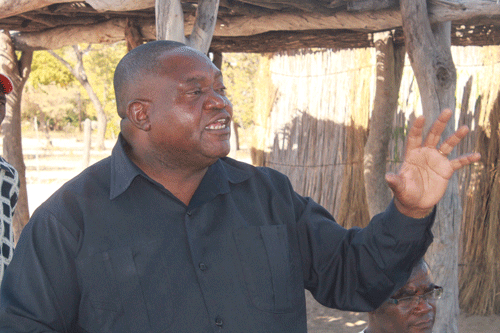RUNDU – With schools opening their gates for learners for the first term, Kavango East director of education Fanuel Kapapero has said over 1 000 learners are without schools at the riverine town of Rundu.
The situation has called for the development of at least one fully-fledged secondary school.
Due to the high demand, the directorate of education has now decided with immediate effect to open up a makeshift school next to the education circuit office at the town to cater to unplaced grades eight, nine and 10 because existing schools are bursting at the seams due to the urban influx.
“It is tough this year, especially in the Rundu circuit, where we have a number of learners that are not yet placed in grades eight, nine and 10 because schools are full. When you say Rundu is overpopulated, it is still an understatement; at the directorate, we feel it. I feel it. I have been around long enough but I have never seen this type of influx in Rundu,” Kapapero stressed.
Kapapero told New Era there is a tender currently being advertised to construct classrooms at various schools, however,
he indicated they would rather use that opportunity to build some of the
classrooms at the envisaged ‘project
school’ they plan to establish to arrest the situation – but unfortunately, the tender will not be able to rescue the situation, as it is not an immediate solution.
“We are calling it the project school. The classrooms were initially supposed to be built at different existing schools – but due to the influx, we were advised we should rather put those classrooms together to make a secondary school. Rundu is a problem now; you see all the children from the villages are in town. The villages are empty due to the urban influx,” he noted.
“The tender for classrooms was delayed, but we are going to build classrooms – but in the meantime, we want to set up tents. We will set them up at the envisaged new school – but also, the tents are likely to be placed at various existing schools for now so that we keep them there temporarily – and once the envisaged school or classrooms are done, then they can move in,” he said.
Kapapero urged teachers and principals to be patient and support learners despite the overcrowded situations at schools.
“We now have to wait for government to see if they can support with teachers, textbooks, chairs and desks – but most importantly, we want the teachers that are there, including principals, we know they are overwhelmed; they really need to be patient and see how we can support the Namibian child,” he said.
The ministry budgeted N$20 million for additional classrooms at the existing schools and the directorate will now divert the classrooms into a fully-fledged school.
“But also, don’t forget Siguruguru Primary School at Tumweneni informal settlement on the southeastern outskirts of Rundu will also get a big share from the total budget for several classrooms; as you know, that school is currently a makeshift structure and they also need permanent classrooms,” he noted.



